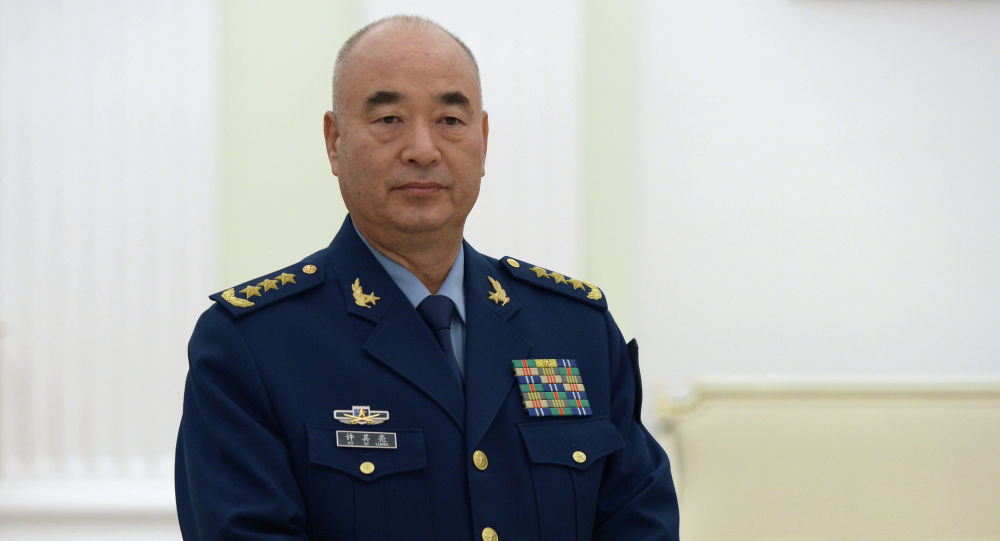Officials in Beijing have been making a concerted push to cooperate with the militaries of Central Asian states, at a time when tensions between Beijing and Washington run high over trade tariffs.
Xu Qiliang, China’s Vice Chairman of the Central Military Commission, is currently on a nine-day trip to Kazakhstan, Kyrgyzstan and Tajikistan, which began on Saturday and runs through September 9. Xu Qiliang, who is considered a right-hand man to Chinese Premier Xi Jinping, is expected to hold talks with heads of state and high-ranking military officials.
“This visit will contribute to strengthening strategic mutual trust between China and these three countries, as well as promoting pragmatic cooperation in the military sphere,” Wu Qian, a spokesperson for the ministry said Friday, according to reports by Sputnik.
The visit to Central Asia comes amid news that U.S. President Donald Trump is in support of more tariffs on Chinese goods. Throughout this year his administration has been imposing tariffs on products that Trump says are in the interest of U.S. national security and the intellectual property of American businesses, as well as help reduce the U.S.’ trade deficit with China. China has responded in kind with similarly sized tariffs on American-made products.
Tensions between the two countries don’t stop at tariffs.
Recently Trump cited China when justifying the need for a U.S. military space force by 2020. Late last year he identified China as an enemy and a “revisionist” power determined to undermine American security and economic power.
Amid such statements, officials in Beijing are looking for alternative partners.
Kazakhstan, Tajikistan, and Kyrgyzstan, all which share borders with China, have long been partners within the Shanghai Cooperation Organization (SCO), an eight-member bloc that are committed to regional security and development.
The countries are significance to Beijing in terms of ensuring security in the Xinjiang Uyghur Autonomous Region in China’s far west and help stabilize Afghanistan.
Alexander Shustov, a historian, says the countries of Central Asia are wary of Beijing’s policies, however.
“There are strong fears that China, which has already become one of the largest, and for a number of countries – the main economic partner and investor, will digest them and put them in a tough financial, economic, and then military-political dependence. And it will be extremely difficult to break out of ‘the paws of the dragon’ in this case,” he wrote in an article earlier this year.
Yet there is a level of interdependence between China and the Central Asia Republics. Oil-rich Kazakhstan provides China mostly with petroleum, copper, uranium, ferroalloys, zinc, iron and sulfur. China, for its part, is considered Kazakhstan’s second largest trading partner, behind Russia, with a trade turnover of nearly $10 billion in 2017.
“Without having its own hydrocarbon reserves, China expects to ensure its energy security through supplies from Central Asia and Russia in case of a hypothetical conflict with the United States and the closure of the Strait of Malacca, through which oil is delivered from the Persian Gulf,” Shustov wrote, also mentioning China’s Belt and Road Initiative.
Standing at the crossroads between East and West and between North and South, Kazakhstan is considered China’s key partner in the Belt and Road Initiative, which is a network of infrastructure projects expected to pass across Southeast Asia, South Asia, and Central Asia.







 Azerbaijan and Armenia started the process of demarcation of their border on Tuesday, with the installation of the first border markers based on ge...
Azerbaijan and Armenia started the process of demarcation of their border on Tuesday, with the installation of the first border markers based on ge...
 President Aliyev emphasized the critical role of the North-South Transport Corridor in fostering transport cooperation between Azerbaijan and Russi...
President Aliyev emphasized the critical role of the North-South Transport Corridor in fostering transport cooperation between Azerbaijan and Russi...
 Armenian sappers commenced on Monday mine-clearance operations in the territories adjacent to the Saint Mary Church in village of Voskepar (Armenia...
Armenian sappers commenced on Monday mine-clearance operations in the territories adjacent to the Saint Mary Church in village of Voskepar (Armenia...
 Russian Foreign Minister Sergei Lavrov has reasserted that Moscow has no intentions to stop the fighting in Ukraine, even if peace talks commence.
Russian Foreign Minister Sergei Lavrov has reasserted that Moscow has no intentions to stop the fighting in Ukraine, even if peace talks commence.
 Iran has refuted reports of alleged damage to Shimon Peres Negev Nuclear Research Centre located southeast of Dimona, Israel, during the recent air...
Iran has refuted reports of alleged damage to Shimon Peres Negev Nuclear Research Centre located southeast of Dimona, Israel, during the recent air...
 Iran’s Foreign Minister, Hossein Amir-Abdollahian, has labeled a foiled Israeli drone attack in certain parts of the country as a "failure" for Isr...
Iran’s Foreign Minister, Hossein Amir-Abdollahian, has labeled a foiled Israeli drone attack in certain parts of the country as a "failure" for Isr...



